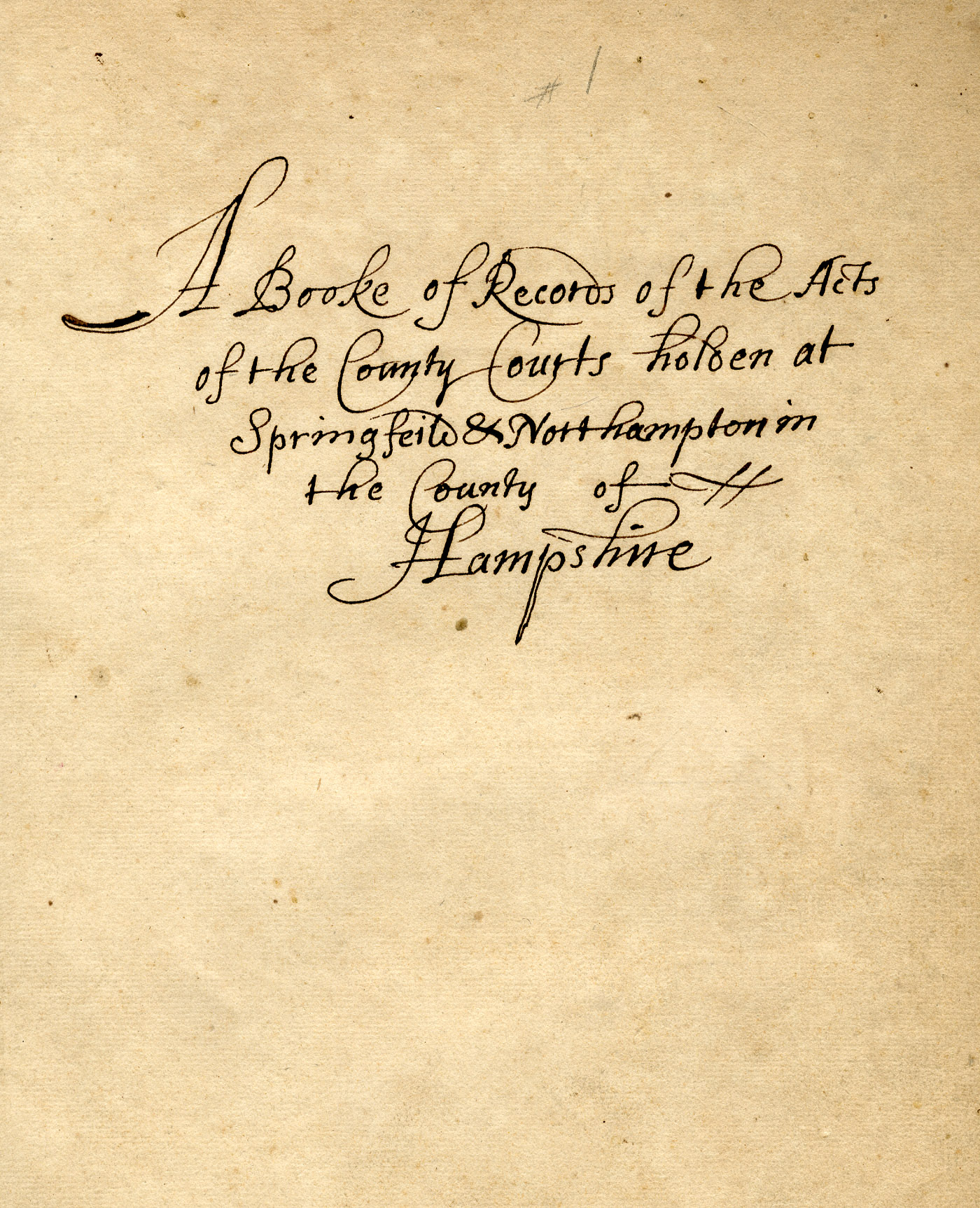Background on Hampshire Council of Governments

Titlepage, vol. 1
From the mid-1630s, European settlement of western Massachusetts progressed northward up the Connecticut River Valley, spreading gradually to the east and west. Under the authority of the General Court in Boston, Hampshire County was established in 1662 with courthouses in the two largest settlements, Springfield and Northampton, assuming jurisdiction over most of the current-day Commonwealth west of Worcester. Civil authority was administered through a three-tiered system in which magistrates (later justices of the peace) dispensed justice at the local level, above which sat a system of county-level courts and the General Court and Court of Assistants in Boston (later the Governor and Council).
County-level courts bore much of the responsibility for regional administration, ranging from laying out highways, roads, ferries, dams, and bridges to licensing taverns, inns, and retailers; keeping jails; and maintaining local order. Civil suits exceeding 40 shillings but less than ten pounds were heard in the Inferior Court of Common Pleas, while the Court of General Sessions, composed of a quorum of local justices, heard most non-capital criminal cases. For more serious crimes, including capital offences, cases were referred to the Superior Court of Judicature, a circuit court established in 1692 that met in each county as designated by the legislature.
As the population of western Massachusetts increased, Hampshire County was divided several times into smaller, more manageable bodies. The eastern part was separated out as Worcester County by act of the legislature on April 2, 1731, followed by the separation of the west into Berkshire County on April 21, 1761. Sandwiched in between Worcester and Berkshire, the remains of Hampshire County were further divided horizontally into thirds, with the northern portion becoming Franklin County (June 24, 1811) and the southern, Hampden County (Feb. 25, 1812) in which Springfield served as county seat.
The political evolution of the Commonwealth led to other changes in the system of county courts and administration, particularly after the state constitution of 1780 mandated a complete separation of legislative, judicial, and executive functions. In 1821, Massachusetts established a state-wide Court of Common Pleas and within three years, all judicial powers of the Court of General Sessions were transferred to that Court and the administrative powers were delegated to a newly created body of County Commissioners and Commissioners of Highways. After the Court of General Sessions was abolished in 1827, the County Commissioners in Hampshire County assumed responsibility for the administrative functions of the General Sessions as well. Ultimately, the Court of Common Pleas was abolished altogether during further reorganization in 1859, with most of its trial functions delegated to the new, state-wide Superior Court.
By the last decade of the twentieth century, many county governments had become little more than vestiges of their former selves, with judicial and administrative functions having been absorbed by operations of the towns or by the state government. When Middlesex County reached a point of near insolvency in June 1997 and dissolved, it set off a period of three years in which eight of the fourteen county governments in Massachusetts were laid down and others were substantially reorganized.
Hampshire County was officially abolished on Jan. 1, 1999, and many of its responsibilities were reorganized under the Hampshire Council of Governments as a voluntary association of cities and towns. Chartered under Massachusetts General Law 34B, S20(b), the Hampshire Council is a body politic and corporate that oversees basic services for its member communities, including roadways, the electricity supply, building inspection, tobacco control, and cooperative purchasing.

